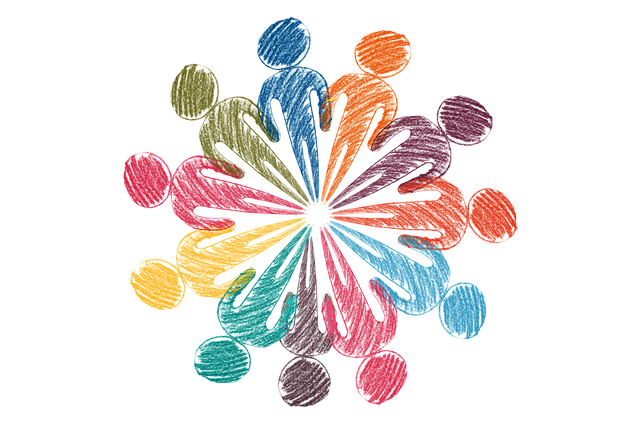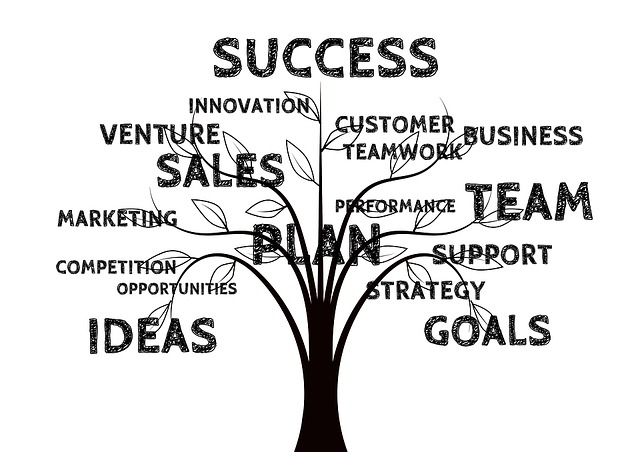Is There Hope for Local Living Economy? from Axiom News on Vimeo.
Like many Transition, and other changemaking initiatives around the world, Transition Town Peterborough (TTP) has been giving some serious thought to how it might scale up its impacts. Founded in 2007, but built onREconomy principles long before the term ‘REconomy’ was even used, entrepreneurship has always been at the heart of what they do. One of the group’s founders, Fred Irwin, was recently asked at the group’s annual Purple Onion Festival what gives him hope. The video above captures his response:
What kind of thinking and processes might enable a community Transition initiative to really scale up its impact?
TTP is focused on “changing ideas and world views, and the creation of practical demonstration projects”. As a volunteer group, committed to scaling up the Transition model in their community, they are focusing their energy on the following four key strategic areas:
 Embedding local money: Approaching the City Council to see if they might take over running of the local currency the Kawartha Loon (see photo below), accepted by more than 110 businesses. At the moment it is backed by the $60,000 thus far exchanged for the currency. If it were backed by the City’s estimated $30 million deposits, the reach and impact of the scheme would increase hugely.
Embedding local money: Approaching the City Council to see if they might take over running of the local currency the Kawartha Loon (see photo below), accepted by more than 110 businesses. At the moment it is backed by the $60,000 thus far exchanged for the currency. If it were backed by the City’s estimated $30 million deposits, the reach and impact of the scheme would increase hugely.
The 25% Local Food Shift: Working with students of the two local post-secondary institutions and a number of not-for-profit partners, including Farms at Work, TTP has published research showing that a 25% shift in spending towards locally-produced food would benefit the local economy, in 10 years time, by $400 million Cdn a year. Having a robust economic case hugely helps making the case for intentional localisation

Broadening the group’s communications: Through the Greenzine, the group is always seeking ways to reach more people. A recent shift in messaging “scale” in the Greenzine was the move from a Buy Local publication in support of locally-owned businesses, to a consumer magazine with Living Locally as the theme printed on each page and with one quarterly edition dedicated to the adaptive changes required to Live Locally. The magazine is also carries a strong positive message, a sense of what could be achieved. As TTP’s Cheryl Lyon puts it, “we don’t want the catastrophe to do the work for us”
Reskilling: this is a very successful TTP initiative (in terms of reach). In its seventh year, the Transition Skills Forum invites citizens to host sharing a broad range of resilient and adaptive skills e.g. bread-making, edible wild foods, green building etc. The Forum has been run from the beginning as socially inclusive pay-what-you-can policy of $5 Cdn or KL’s (the local currency) and is sponsored by the local Trent University’s students’ sustainability association.
Scaling up does not aim at making TTP bigger but at having the message of Transition through the interrelated eco-social and economic impacts of climate change understood and acted upon in adaptive, positive and constructive ways throughout the community and by many different groups, not just TTP. They also know how to party, as this video shows:
Message for COP21: “Localise as much of your economy, as fast as you can. It cuts your carbon footprint in food, it supports continued business in your community, you build community resilience and strength with people helping each other, communicating with each other. You change peoples’ thinking, so that they think more locally, they act more locally. This may fly in the face of what economists want to hear about growth but it’s absolutely necessary in these transition times”. Cheryl Lyon of Transition Town Peterborough.
Super Hero Spotted at Purple Onion Festival from Axiom News on Vimeo.


 The Aviva Community Fund helps passionate people like you make positive change in your community.
The Aviva Community Fund helps passionate people like you make positive change in your community. The BC Co-operative Association applauds the Provincial Government for seeing co-operatives as key to building a sustainable provincial economy.
The BC Co-operative Association applauds the Provincial Government for seeing co-operatives as key to building a sustainable provincial economy.
 For as long as I have been working in the field of community development, the CCEDNet Gathering has been an annual event that I look forward to. I attended my first Gathering almost a decade ago; at the time still a university student just beginning to appreciate the importance of community-led strategies for economic, social and environmental resilience and sustainability. The Gathering introduced me to the innovative work being done across Manitoba and the people leading this work in their communities. As a student, the Gathering provided me with valuable connections as well as new ideas about the kind of work I wanted to pursue. Each year, I have returned to the Gathering while working for a number of different organizations in a variety of roles. I always leave feeling more grounded in the work that I am doing and with a renewed sense of purpose after spending the day celebrating the innovation and successes that are being generated in our communities.
For as long as I have been working in the field of community development, the CCEDNet Gathering has been an annual event that I look forward to. I attended my first Gathering almost a decade ago; at the time still a university student just beginning to appreciate the importance of community-led strategies for economic, social and environmental resilience and sustainability. The Gathering introduced me to the innovative work being done across Manitoba and the people leading this work in their communities. As a student, the Gathering provided me with valuable connections as well as new ideas about the kind of work I wanted to pursue. Each year, I have returned to the Gathering while working for a number of different organizations in a variety of roles. I always leave feeling more grounded in the work that I am doing and with a renewed sense of purpose after spending the day celebrating the innovation and successes that are being generated in our communities. Over the last 10 years, Jenna has worked in different areas of community-based programming, including youth recreation, youth and adult literacy, food security and housing. This diversity of experience has given her an appreciation for the many different ways to approach and understand community economic development. She is thrilled to now be a part of the CCEDNet team.
Over the last 10 years, Jenna has worked in different areas of community-based programming, including youth recreation, youth and adult literacy, food security and housing. This diversity of experience has given her an appreciation for the many different ways to approach and understand community economic development. She is thrilled to now be a part of the CCEDNet team. n, require new and innovative responses. With a social innovation and social finance strategy, the government wants to provide better support for community organizations working to achieve positive solutions to entrenched social problems, including those faced by vulnerable populations.
n, require new and innovative responses. With a social innovation and social finance strategy, the government wants to provide better support for community organizations working to achieve positive solutions to entrenched social problems, including those faced by vulnerable populations. We’ve all heard the stories. Homeless Homejoy cleaners. Uber drivers on food stamps. Grad students Airbnb-ing their extra rooms in gentrifying neighborhoods to cover their own rent.
We’ve all heard the stories. Homeless Homejoy cleaners. Uber drivers on food stamps. Grad students Airbnb-ing their extra rooms in gentrifying neighborhoods to cover their own rent. Sarah Treuhaft is director of Equitable Growth Initiatives at PolicyLink, a national research and action institute advancing economic and social equity. She leads the organization’s work on demographic change and the economy, collaborating with local and national partners on research and action projects that aim to build a more equitable economy. She manages the development of the National Equity Atlas (
Sarah Treuhaft is director of Equitable Growth Initiatives at PolicyLink, a national research and action institute advancing economic and social equity. She leads the organization’s work on demographic change and the economy, collaborating with local and national partners on research and action projects that aim to build a more equitable economy. She manages the development of the National Equity Atlas ( “Our 2017 recipients are remarkable examples of what can be accomplished when you blend the power of business models with the desire to solve the world’s social problems” says Daniel Overall, Executive Director of the Trico Charitable Foundation. “Partnering with over 90 community agencies and 12 plus corporate partnerships, Furniture Bank is breaking new ground on the possibilities of scale, while from its nails to its neighbours the intentionality of Fogo Island Inn is extraordinary. Together they are demonstrating the breadth and depth of the how a social enterprise can be – to paraphrase Abraham Lincoln – of the community, by the community, for the community.”
“Our 2017 recipients are remarkable examples of what can be accomplished when you blend the power of business models with the desire to solve the world’s social problems” says Daniel Overall, Executive Director of the Trico Charitable Foundation. “Partnering with over 90 community agencies and 12 plus corporate partnerships, Furniture Bank is breaking new ground on the possibilities of scale, while from its nails to its neighbours the intentionality of Fogo Island Inn is extraordinary. Together they are demonstrating the breadth and depth of the how a social enterprise can be – to paraphrase Abraham Lincoln – of the community, by the community, for the community.” “We are thrilled to be recognized for the work we are doing in social enterprise. When customers use Furniture Bank’s social enterprise they are a part of a 72 hour cycle where the customers problem is another families solution as they build a dignified home with the donations collected through the social enterprise. The synergy between customer and beneficiary is very special to our social enterprises success. We are honoured to join the Trico Foundation family and the other Social EnterPrize recipients”, Dan Kershaw, Executive Director, Furniture Bank.
“We are thrilled to be recognized for the work we are doing in social enterprise. When customers use Furniture Bank’s social enterprise they are a part of a 72 hour cycle where the customers problem is another families solution as they build a dignified home with the donations collected through the social enterprise. The synergy between customer and beneficiary is very special to our social enterprises success. We are honoured to join the Trico Foundation family and the other Social EnterPrize recipients”, Dan Kershaw, Executive Director, Furniture Bank. Furniture Bank is a registered charity and social enterprise that has been helping people in the Greater Toronto Area establish their homes since 1998. It transfers gently used furniture and household goods donated by the community to people who are in need of a fresh start. The organization’s fleet of trucks are on the road throughout the year, picking up furniture and delivering items to formerly displaced individuals directly to their homes. Furniture Bank’s goal is to expand these activities to support furniture banks across Canada.
Furniture Bank is a registered charity and social enterprise that has been helping people in the Greater Toronto Area establish their homes since 1998. It transfers gently used furniture and household goods donated by the community to people who are in need of a fresh start. The organization’s fleet of trucks are on the road throughout the year, picking up furniture and delivering items to formerly displaced individuals directly to their homes. Furniture Bank’s goal is to expand these activities to support furniture banks across Canada. “Social Enterprise has given us the opportunity to redefine how business is used as a tool to strengthen community and develop the inherent capacities of people, as well as create models for community ownership of economic assets. It is very meaningful to have the Fogo Island Inn recognized in this light and we are deeply appreciative of Trico Foundation’s work to support development in this field”, Diane Hodgins, CFO of the Shorefast Foundation.
“Social Enterprise has given us the opportunity to redefine how business is used as a tool to strengthen community and develop the inherent capacities of people, as well as create models for community ownership of economic assets. It is very meaningful to have the Fogo Island Inn recognized in this light and we are deeply appreciative of Trico Foundation’s work to support development in this field”, Diane Hodgins, CFO of the Shorefast Foundation. Shorefast employs business-minded means to achieve social ends. In the midtwentieth century, factory overfishing by international trawlers caused a dramatic decline in commercial cod stocks off the coast of Newfoundland, eventually leading to a moratorium on cod fishing in 1992. Since that time, the people of Fogo Island have struggled to make a living in the place they’ve called home for over 400 years.The Fogo Island Inn is a direct response to a pressing need to find new relevance for traditional knowledge, and was created to be a cultural and economic engine for Fogo Island. When taking stock of existing skills on Fogo Island, we chose to build on Fogo Islanders’ innate predisposition towards exceptional hospitality, creating the Inn as a further expression of that talent.
Shorefast employs business-minded means to achieve social ends. In the midtwentieth century, factory overfishing by international trawlers caused a dramatic decline in commercial cod stocks off the coast of Newfoundland, eventually leading to a moratorium on cod fishing in 1992. Since that time, the people of Fogo Island have struggled to make a living in the place they’ve called home for over 400 years.The Fogo Island Inn is a direct response to a pressing need to find new relevance for traditional knowledge, and was created to be a cultural and economic engine for Fogo Island. When taking stock of existing skills on Fogo Island, we chose to build on Fogo Islanders’ innate predisposition towards exceptional hospitality, creating the Inn as a further expression of that talent. Last week the Province of Manitoba announced a single-window intake for 6 programs, including
Last week the Province of Manitoba announced a single-window intake for 6 programs, including  The Canadian CED Network hosts a number of “Strengthening Non-Profits” workshops throughout the year on a variety of topics identified through engagement and consultation with our members and partners. Check out the following offerings in 2017. For more information or to let us know about a customized Build-Your-Own workshop you’d like to see, contact Jenna Drabble at jdrabble at ccednet-rcdec.ca.
The Canadian CED Network hosts a number of “Strengthening Non-Profits” workshops throughout the year on a variety of topics identified through engagement and consultation with our members and partners. Check out the following offerings in 2017. For more information or to let us know about a customized Build-Your-Own workshop you’d like to see, contact Jenna Drabble at jdrabble at ccednet-rcdec.ca.





 CCEDNet Member
CCEDNet Member  Neighbourhoods Alive! is a clear case of intelligent public investment, but the provincial government has halted funding, and the program is inactive. This is counterproductive and does little to heal the bridge between First Nations and the rest of Winnipeg.
Neighbourhoods Alive! is a clear case of intelligent public investment, but the provincial government has halted funding, and the program is inactive. This is counterproductive and does little to heal the bridge between First Nations and the rest of Winnipeg. Jim Silver is a professor and chairman of the University of Winnipeg’s department of urban and inner-city studies,needs resurrection and was an active member of the team that worked in Lord Selkirk Park starting in 2005. Dr. Silver is also a research associate with the Canadian Centre for Policy Alternatives — Manitoba.
Jim Silver is a professor and chairman of the University of Winnipeg’s department of urban and inner-city studies,needs resurrection and was an active member of the team that worked in Lord Selkirk Park starting in 2005. Dr. Silver is also a research associate with the Canadian Centre for Policy Alternatives — Manitoba.